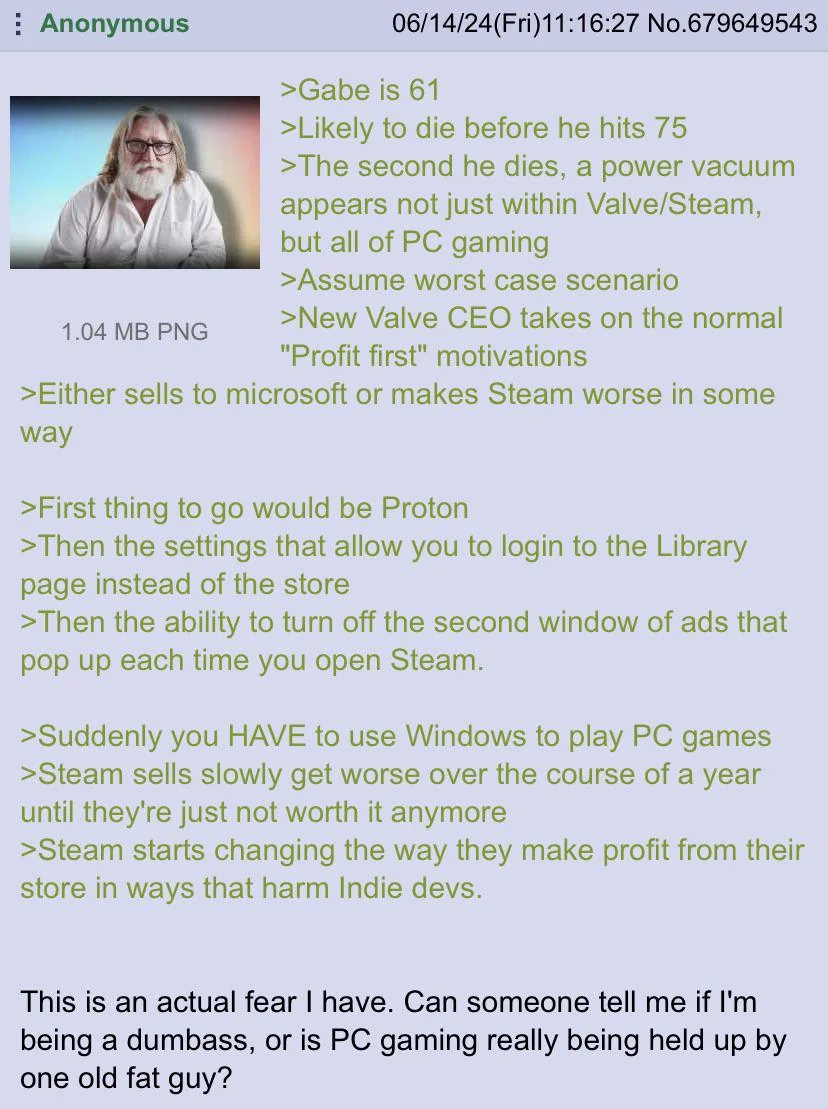this post was submitted on 16 Jun 2024
1263 points (97.1% liked)
Steam
10254 readers
2 users here now
Steam is a video game digital distribution service by Valve.
Steam News | Steam Beta Client news
Useful tools:
SteamDB
SteamCharts
Issue tracker for Linux version of Steam
founded 3 years ago
MODERATORS
you are viewing a single comment's thread
view the rest of the comments
view the rest of the comments

Valve is a unique company with no traditional hierarchy. In business school, I read a very interesting Harvard Business Review article on the subject. Unfortunately it’s locked behind a paywall, but this is Google AI’s summary of the article which I confirm to be true from what I remember:
According to a Harvard Business Review article from 2013, Valve, the gaming company that created Half Life and Portal, has a unique organizational structure that includes a flat management system called "Flatland". This structure eliminates traditional hierarchies and bosses, allowing employees to choose their own projects and have autonomy. Other features of Valve's structure include:
Kinda sounds like how worker cooperatives work tbh, but with Gabe still technically being the owner.
I remember reading a news piece a while back about how the founder of a company made sure to transfer ownership to the employees before leaving. While we're talking about worst-case scenarios, let's also hope for the best and hope that Gabe has a similar plan.
Him being a pretty smart guy overall surely has at least some sort of continuity planned.
It would be best to convert it to full employee ownership if it isn’t yet. As long as a steady stream of good employees keeps revolving in it should be a stable company that provides for its employees and customers.
PeopleMakeGames has a two part series on Valve that's pretty interesting. The second part (here) dives into the structure of the company. It does have a bit of an angle, fwiw, so if you'd prefer something more objective, it might not be a great watch. Personally I think the issues they bring up are valid, but figured I'd mention it.
Stack ranking is toxic and removes individuality from a given employees expectations in my opinion.
People should be qualified to give proper unbiased reviews. Just because someone is an excellent engineer does not mean they are good at understanding other people's expectations and work outputs.
I worked at a company that had no 'managers' just the owner, and everyone else. I hated that I had no real way to settle disputes and every single disagreement has to ultimately be resolved by the literal one person who was in charge.
I think there is merit to flat structures, but I don't think the extreme is always the way to go.
A little unsure about the "peer based performance review", sounds like bullying might somehow have to be kept in check. Otherwise this sounds awesome.
Lots of companies have peer based employee reviews, cliques have the capability to cause harm in these firms but normally the peers reviewing you are rotated each review period to minimalise that and any bad actors can normally seen by management’s review of the peer reviews.
But then remove the management oversight
I don’t believe Valves claim of perfectly flat structure, Gabe is the owner, he if no one else is management and has the power. I’m willing to bet there’s a second level of reviewers for peers, if nothing else then it’s a second separate set of peers reviewing the first set’s reviews to watch for this problem.
Fun fact: Former employees of Valve have said that is actually a huge problem in the organization and that its organizational structure seems to encourage bullying and high-school style "cliquishness" by design.
I mean it's not as though that's not a problem in normal companies. It's just that normal companies can sort of use the guise of structure or professionalism to harangue whatever employees the clique ends up disliking. The cliques are baked in, in a normal company.
Exactly, in a normal structure the bullied employee would just be told they don't fit the culture.
It can be a problem at other companies, but even worse than average at Valve by virtue of corporate structure. Both of these things can be true.
How does more boring tasks like accounting, legal or facilities work?
They just get ignored, like TF2.
This, and as long as the company is legally structured to prevent restructuring things will be fine.